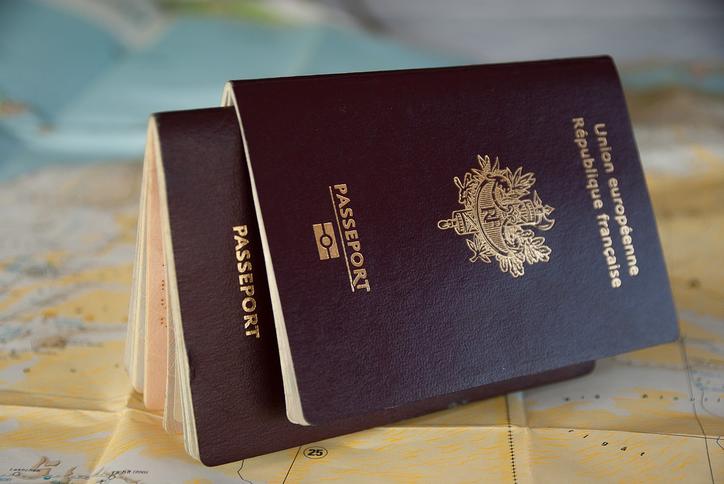If you are an international student seeking a world-class education, cultural immersion, and academic rigor, France is a great option. The country’s 3,500+ public and private schools attract thousands of international students annually due to the quantity of English and French language programs. However, before you can start your academic career in France, you must get a student visa.
This comprehensive guide will cover everything you need to know to acquire a student visa for France, including eligibility, types of visas, required documents, application procedures, and useful recommendations for success.

Why Attend University in France?
Before you begin the visa application process, here are a few reasons why France is a popular choice among students worldwide:
- Elite educational institutions.
- Tuition at public schools is rather affordable.
- A gateway to the Schengen Area for travelers.
- Various English and French-language programs.
- A culturally and historically significant environment.
- Grants for international students.
Do I Need a Student Visa to Study in France?
If you are not a citizen of the EU/EEA or Switzerland and want to study in France for more than 90 days, you will require a student visa.
For courses that are less than 90 days, a short-stay visa can be enough. For programs that last longer than six months, such as degree programs, you’ll need a long-stay student visa (VLS-TS).
Types of French Student Visas
1. Visa de court séjour pour études — Student Visa for Short-Term Study
- Only applicable to studies that last fewer than 90 days.
- A great fit for summer programs, language lessons, and entrance exams.
- Neither renewed nor converted to a long-stay visa is possible.
2. Temporary Long-Stay Visa (Visa de long séjour temporaire pour études)
- Typically ranges from three to six months.
- You won’t require a residence permit.
- There is no way to get more time.
3. Long-Stay Student Visa (VLS-TS)
- The most common student visa.
- Valid for one year and may be renewed.
- Also serves as a residence permit.
- Required for doctoral, master’s, and undergraduate programs.
Criteria for Obtaining a Student Visa to France
A student visa from France may only be applied for if the following conditions are met:
- Get accepted into an elite French school.
- Ensure that you have sufficient funds to support yourself.
- Students above the age of 28 are obliged by law to get health insurance.
- Demonstrate that you intend to return home after you finish school.
Things Required for a French Student Visa
- Request for a visa (completed and authorized)
- Passport valid for at least three months beyond the stay
- Recent photos meeting embassy specifications
- Acknowledgment of enrollment or proof of attendance in a French school
- Housing information in France
- Proof of financial means (€615/month minimum)
- Scholarship documents, bank statements, or sponsor declarations
- Proof of health insurance (if over 28)
- Academic records and certificates
- Resume or personal statement
- Campus France authorization (if applicable)
- Confirmation of visa fee payment
Note: Additional documents such as a birth certificate or police clearance may be requested by specific embassies. Always verify with your local French consulate or VFS office.
Campus France’s Method
Applicants from countries including India, China, and Nigeria must apply via Campus France.
Steps:
- Visit Campus France’s website and enroll.
- Upload academic documents and course details.
- Attend the interview scheduled by Campus France.
- Obtain a No Objection Certificate (NOC).
- Proceed with visa application at the French consulate or VFS Global.
A Guide to Obtaining a Student Visa from France
Step 1: Enroll in a French School
Receive an attestation d’inscription or admission letter.
Step 2: Complete Campus France Procedures
Required for certain countries before applying for the visa.
Step 3: Schedule a Visa Appointment
Make an appointment with the consulate or VFS office.
Step 4: Submit Visa Application
Include all required documents and biometric data.
Step 5: Pay Visa Fee
- Visa fee: €99 (2025 estimate)
- Campus France processing fee: €50–€60
Step 6: Wait for Processing
Apply at least two months before your course. Processing usually takes 15–30 business days.
After You Arrive: Start Using Your VLS-TS Visa
Validate your VLS-TS visa online within 3 months of arrival:
- Website: French Immigration Portal
Required:
- Visa information
- French postal code
- €60 tax payment
- Digital photo and visa copy
Failing to validate can cause legal and renewal issues.
Can You Work With a French Student Visa?
Yes! With a VLS-TS visa:
- Work part-time: Up to 964 hours/year (~20 hours/week)
- Work full-time during holidays
Work should not interfere with academic progress or be your sole financial support.
Methods for Getting a New French Student Visa
To extend studies (e.g., bachelor’s to master’s), renew your residence permit before expiry:
- Apply online via ANEF
- Submit updated enrollment and financial proof
- Visit local préfecture if needed
- Apply at least 2 months before expiry
Most Popular Justifications for Denying French Student Visas
- Insufficient financial support
- Incomplete application
- Vague academic goals
- Questionable immigration status
- False or low-quality documentation
Ensure authenticity and clarity in all documentation.
Get a Head Start on Your French Student Visa Application
- Apply early upon receiving an acceptance letter.
- Use a checklist to organize documents.
- Prepare for the Campus France interview.
- Be honest in your application.
- Show reliable financial documents.
Financial Aid for Visa Applications
Scholarships help with tuition, living costs, and strengthen your visa application:
- Eiffel Excellence Scholarship
- Charpak Scholarship (for Indian students)
- Campus Bourses tool
In Conclusion
It is possible to apply for a French student visa if you start early, prepare ahead, and pay close attention to detail, even if the process can seem daunting at first. Choosing the right major, gathering the necessary documents, and completing the Campus France procedure all get you closer to studying in a breathtaking and intellectually fascinating country.
If your visa is approved, you may look forward to a bright academic future filled with chances to develop in your career, make international connections, and learn about other cultures.
